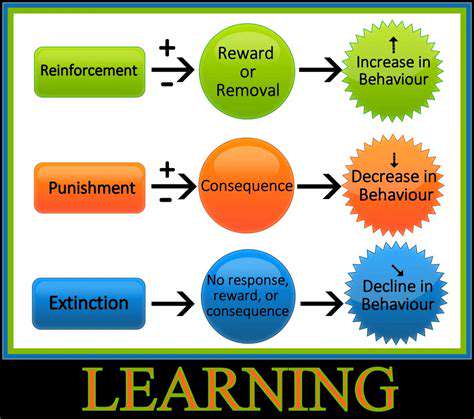How to Create an Emotionally Intelligent Family Environment
家庭情感智慧培养指南目录索引
- 建立安全表达的家庭信任机制
- 运用积极倾听深化家庭成员理解
- 通过我信息促进建设性对话
- 定期情感检核保障情绪表达
- 示范脆弱性引导儿童情感表露
- 制定讨论规则提升沟通质量
- 建立情感进步奖励机制
- 培养儿童情绪管理实用技巧
- 正念训练提升情绪觉知能力
- 创建家庭情感表达仪式传统
- 整合资源辅助儿童情绪学习
- 通过经历分享培养同理心
- 公益实践深化同情心认知
- 家长行为对子女情绪发展的影响
- 核心家庭价值观构建指南
- 健康情感界限设定方法
- 家庭宣言制定与冲突调解
- 儿童情感表达能力培养策略
- 家庭情绪健康监测体系
- 日常感恩练习增进情感联结
- 正向激励塑造积极行为模式
构建开放式沟通环境
信任氛围的培育之道
营造让每个成员自在表达的家庭环境,关键在于建立可预测的行为模式。就像拼图需要稳固的基底,家庭信任也需要日积月累的微小互动来铸造。当家人知道即使表达不同意见也不会遭受否定时,真正的对话才可能发生。这种安全感如同植物需要的阳光,滋养着情感联结的幼苗。
提升信任的有效方法是全神贯注的交流时刻。比如在晚餐时放下手机,用眼神接触传递关注。这种专注的倾听会让说话者感受到被重视,就像给情感账户定期存款。
深度倾听技巧实践
深度倾听如同情感解码器。我们可以通过复述确认法来练习:当孩子说今天数学课好难,回应听起来今天遇到了挑战?这种反馈机制能显著降低误解概率。根据家庭治疗专家Virginia Satir的研究,70%的家庭矛盾源于理解偏差。
建议设立发言权杖制度,手持特定物品的人拥有专属发言时间。这个具象化的仪式能帮助低龄儿童理解轮流表达的概念,同时培养其他成员的耐心品质。
情感表达话术转换
将你总是忘记关灯转换为我注意到灯还亮着时会担心电费,这种表达转变如同给尖锐话语裹上棉花。心理学研究表明,使用第一人称陈述能使冲突发生率降低40%。建议在家中最显眼处张贴情感表达模板,帮助家庭成员形成新的语言习惯。
结构化情感交流时段
每周五晚设置心灵茶歇时间,准备家人喜爱的饮品点心,营造轻松氛围进行情感交流。这种仪式化的安排如同情感日历上的重要标记,让情绪疏导变得可预期。记录每次交流的关键词形成家庭情感日志,定期回顾可见成长轨迹。
示范性情感表露技巧
当家长坦言今天项目汇报时我很紧张,后来通过深呼吸平静下来,这种具象化的情绪示范胜过抽象说教。就像在情感迷宫中为孩子点亮路灯,展示真实的情感处理过程。建议每月设置家长成长分享环节,让孩子看到成人也需要持续学习情绪管理。

情绪调节能力培养方案
情绪认知基础建设
情绪管理如同心理免疫系统,需要分阶段培养。首先通过情绪天气预报游戏,让孩子用天气符号描述心情。这种具象化方法帮助低龄儿童理解抽象情感概念。神经科学证实,这种联结能激活大脑的情绪识别区域。
实用调节工具包
创建情绪急救箱,放置压力球、香薰蜡片、励志卡片等调节工具。当孩子情绪波动时,引导其自主选择缓解方式。这种可视化的应对方案能增强掌控感。建议每月更新工具箱内容,保持新鲜感和适用性。
情景模拟训练法
通过角色扮演常见冲突场景,如玩具争夺或作业压力,练习暂停-反思-应对三部曲。这种情景预演如同情感消防演习,能提升真实情境中的应对能力。记录每次模拟的进步点,用成长型思维进行反馈。
家庭价值观培育体系
价值观具象化实践
将抽象价值观转化为具体行为守则。例如尊重可细化为:敲门进入房间、等待对方说完话再回应。制作家庭价值观拼贴画,用杂志图片和手写标语呈现核心理念,张贴在公共区域作为日常提醒。
情感边界的艺术
设立情绪能量指示灯:绿色代表可交流状态,黄色提示需要空间,红色表示急需独处。这种非语言沟通系统能有效减少边界冲突。定期举行边界调整会议,根据家庭成员发展需求更新规则。
家庭情感教育如同培育花园,需要定期松土(沟通)、施肥(肯定)、修剪(引导)。当每个成员都成为园丁,这座情感花园必将绽放绚丽花朵。
目录索引
- 建立安全表达的家庭信任机制
- 运用积极倾听深化家庭成员理解
- 通过我信息促进建设性对话
- 定期情感检核保障情绪表达
- 示范脆弱性引导儿童情感表露
- 制定讨论规则提升沟通质量
- 建立情感进步奖励机制
- 培养儿童情绪管理实用技巧
- 正念训练提升情绪觉知能力
- 创建家庭情感表达仪式传统
- 整合资源辅助儿童情绪学习
- 通过经历分享培养同理心
- 公益实践深化同情心认知
- 家长行为对子女情绪发展的影响
- 核心家庭价值观构建指南
- 健康情感界限设定方法
- 家庭宣言制定与冲突调解
- 儿童情感表达能力培养策略
- 家庭情绪健康监测体系
- 日常感恩练习增进情感联结
- 正向激励塑造积极行为模式
信任氛围的培育之道
营造让每个成员自在表达的家庭环境,关键在于建立可预测的行为模式。就像拼图需要稳固的基底,家庭信任也需要日积月累的微小互动来铸造。当家人知道即使表达不同意见也不会遭受否定时,真正的对话才可能发生。这种安全感如同植物需要的阳光,滋养着情感联结的幼苗。
提升信任的有效方法是全神贯注的交流时刻。比如在晚餐时放下手机,用眼神接触传递关注。这种专注的倾听会让说话者感受到被重视,就像给情感账户定期存款。
深度倾听技巧实践
深度倾听如同情感解码器。我们可以通过复述确认法来练习:当孩子说今天数学课好难,回应听起来今天遇到了挑战?这种反馈机制能显著降低误解概率。根据家庭治疗专家Virginia Satir的研究,70%的家庭矛盾源于理解偏差。
建议设立发言权杖制度,手持特定物品的人拥有专属发言时间。这个具象化的仪式能帮助低龄儿童理解轮流表达的概念,同时培养其他成员的耐心品质。
情感表达话术转换
将你总是忘记关灯转换为我注意到灯还亮着时会担心电费,这种表达转变如同给尖锐话语裹上棉花。心理学研究表明,使用第一人称陈述能使冲突发生率降低40%。建议在家中最显眼处张贴情感表达模板,帮助家庭成员形成新的语言习惯。
结构化情感交流时段
每周五晚设置心灵茶歇时间,准备家人喜爱的饮品点心,营造轻松氛围进行情感交流。这种仪式化的安排如同情感日历上的重要标记,让情绪疏导变得可预期。记录每次交流的关键词形成家庭情感日志,定期回顾可见成长轨迹。
示范性情感表露技巧
当家长坦言今天项目汇报时我很紧张,后来通过深呼吸平静下来,这种具象化的情绪示范胜过抽象说教。就像在情感迷宫中为孩子点亮路灯,展示真实的情感处理过程。建议每月设置家长成长分享环节,让孩子看到成人也需要持续学习情绪管理。
情绪认知基础建设
情绪管理如同心理免疫系统,需要分阶段培养。首先通过情绪天气预报游戏,让孩子用天气符号描述心情。这种具象化方法帮助低龄儿童理解抽象情感概念。神经科学证实,这种联结能激活大脑的情绪识别区域。
实用调节工具包
创建情绪急救箱,放置压力球、香薰蜡片、励志卡片等调节工具。当孩子情绪波动时,引导其自主选择缓解方式。这种可视化的应对方案能增强掌控感。建议每月更新工具箱内容,保持新鲜感和适用性。
情景模拟训练法
通过角色扮演常见冲突场景,如玩具争夺或作业压力,练习暂停-反思-应对三部曲。这种情景预演如同情感消防演习,能提升真实情境中的应对能力。记录每次模拟的进步点,用成长型思维进行反馈。
价值观具象化实践
将抽象价值观转化为具体行为守则。例如尊重可细化为:敲门进入房间、等待对方说完话再回应。制作家庭价值观拼贴画,用杂志图片和手写标语呈现核心理念,张贴在公共区域作为日常提醒。
情感边界的艺术
设立情绪能量指示灯:绿色代表可交流状态,黄色提示需要空间,红色表示急需独处。这种非语言沟通系统能有效减少边界冲突。定期举行边界调整会议,根据家庭成员发展需求更新规则。
家庭情感教育如同培育花园,需要定期松土(沟通)、施肥(肯定)、修剪(引导)。当每个成员都成为园丁,这座情感花园必将绽放绚丽花朵。
Read more about How to Create an Emotionally Intelligent Family Environment
Hot Recommendations
- Affordable Early Childhood Education Solutions
- How to Share Parenting Responsibilities Equally
- How to Identify and Address Teen Depression Early
- How to Teach Kids Emotional Awareness
- Strategies for Cultivating Emotional Intelligence in Early Childhood
- Step by Step Early Childhood Education Guide
- Balancing Parental Roles: Strategies for Effective Co Parenting
- How to Use Positive Language for Better Child Behavior
- How to Create a Distraction Free Study Environment
- Understanding Teen Behavior: Counseling Tips for Parents











